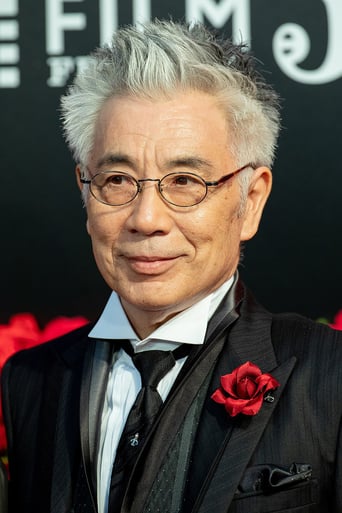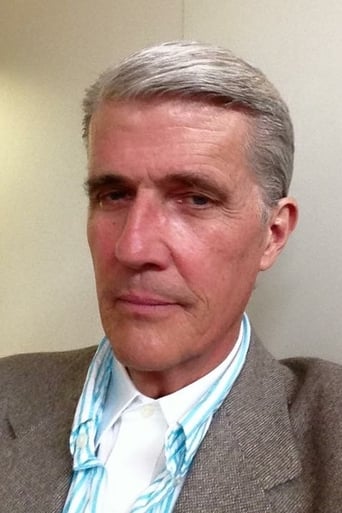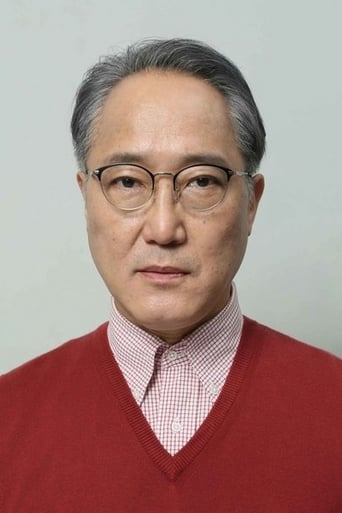Sexyloutak
Absolutely the worst movie.
Fairaher
The film makes a home in your brain and the only cure is to see it again.
Rio Hayward
All of these films share one commonality, that being a kind of emotional center that humanizes a cast of monsters.
Jenna Walter
The film may be flawed, but its message is not.
bryanmillsfist
As an WWII buff, I was intrigued when I saw this film pop up on my Netflix recommence list. Alas, I ought to have taken the time to beforehand to look up the director. Alesandr Sokurov made the dreadful "Russian Ark". This film, while not nearly as bad as "Ark" or Malick's horrendous "Thin Red Line", suffers from a limp, aimless, script that is augmented by equally limp, wooden acting. The Americans in this film are a collection of stereotypes posing as characters. Richard Dawson in particular is awful. He appears to suffer from a case of macrocephaly which is seriously distracting. His massive head--quite unlike what MacArthur had-- makes him look like a mad scientist in an army uniform. His acting, the apposite of Tommy Lee Jones portrayal of MacArthur in "Emperor", is lifeless and quite unlike Douglas MacArthur.Issei does a solid enough job of portraying the Emperor. Who can pretend to accurately a man who is seen as a God and is kept largely out of the public eye? Unlike MacArthur, the actor here had little to go on in a character study.In view of this any actor who attempts to portray such a mysterious man has to be given a benefit of the doubt. That said, this is no equal to Ganz's brilliant portrayal of Hitler. Ganz put on one of the great acting performances of all time--at least the equal of Daniel Day-Lewis' Lincoln.I have one final critique and this goes for "Emperor" as well. For some reason when people make movies of the Pacific Theater they mention the A-bombs, but never the great many atrocities the Japanese committed in their 8 years of war. The Japanese were, in fact, the first country to employ WMD in WWII when they used bombs filled with bubonic plague on the Chinese. These weapons were developed by a special unit call Unit 731'. This unit committed horrors that matched those of Mengele and the Nazis. Then we have the Bataan Death March, the Rape of Nanking, and the general brutal occupations of Asian countries. The Japanese did far more than bomb Pearl Harbor. Ask the Chinese, who lost some 15 million citizens to Japanese aggression. Aggression that actually stretches back to 1931.(Even though the Sino-Japanese War did not officially begin until July of 1937.) To not mention Japanese barbarism and aggression on such a large scale is to akin to omitting the Holocaust when discussing the Nazis.
treywillwest
A quietly beautiful film by Sokurov. As usual, the colors amaze, but not in the director's signature close-ups. (There are hardly any until the last scene.) This implies a lack of conventional humanism, and indeed it is so. Instead, we are asked to identify with a parasitic aristocrat- Emperor Hirohito- who wishes to renounce being worshiped as a god, if only to preserve his privileges, in the face of the American occupation of Japan. At first he seems the victim of a sick, heretical culture until you realize how much he understands the rules of the game. Finally, he seems all the more human for understanding those rules. Where does that leave the audience who identifies with him?
bitherwack
I like Ogata in most all he does. But I think his casting here is a mistake. He is excellent at pulling out the one or two things of a type to set up a humorous caricature. He is an excellent comedian. I think, though, that as an impressionist rather than an actor, he played his impersonation a little too broadly. (It may be because Ogata does a lot of stage work, and had trouble toning down for the camera.) Having personally met the Emperor Showa in 1985, I can say with some confidence that though the twitching lips are an attribute, it was not as pronounced as Ogata plays it, less conscious, and more a condition of advanced age. (Hence overdone for playing someone in his 40's.)Another point of contention I have is with the script. There are quite a few moments when Ogata orders his servants to do something; but with the subservient plea "--kudasai". In the first half of the 20th century, the Japanese language was still exceedingly rank conscious. Even a commoner would use a condescending verb form for a request to a subordinate, whether the subordinate was a wife, a servant or an employee. It is even more strange to imagine the fawning servants enduring a request spoken by the Emperor from a linguistic position of submission. Courtly language is quite different from colloquial Japanese, and one instance we have of this is from his first radio transmission in which the Emperor used the personal pronoun 'Chin'.
Chris Knipp
Sokurov's haunting recreation of how Emperor Hirohito spent the last hours before the Japanese surrender, this is a miraculous work, and it provided the most powerful aesthetic and emotional experience of the 2005 New York Film Festival, whose official selections were not lacking in depth and fine film-making. "The Sun" depicts a man who knows very well what is going on but lives in a cocoon, in a state of detachment and ineffectuality that becomes strangely heartrending. Issey Ogata's performance as the Emperor easily competes for hypnotic intensity with Bruno Ganz's Hitler in the German film "Downfall" -- but with a very different sort of bunker and a very different kind of man: a silent, immaculate country house with a few faithful servants in attendance; a small, frail but upright and dignified personage who can easily explain the causes of the Japanese defeat to his general staff but has never learned to dress himself or open a door. Even on this day he is more comfortable browsing through photos of his family and American movie stars, dictating notes on marine biology, and writing poetry. Despite the disgrace, he is selflessly happy that peace has come. He inks a brush to write a statement to his absent son, but instead drafts a few verses about the weather. Later he is taken to see Eisenhower, and then brought back again to dine with the general. He enjoys the wine and the meat and has his first taste of a Havana cigar. The Americans conclude that the Emperor is like a child. "What's it like being a living god?" Ike asks. And speaking, to the dismay of the Japanese interpreter, in perfect English, Hirohito says, "What can I tell you? You know, it is not easy being Emperor." These are just a few details in a film rich in telling ones. Simply enumerating them can't explain this film's slow, cumulative emotional wallop -- or the lovely, fantastic, dreamlike landscape images toward the end. This film about one of modern history's most humiliating defeats is a stunning triumph. "The Sun" demonstrates unmistakably that Andrei Sokurov is one of the world's great filmmakers.




